WITH TEN PIECES OF ADVICE TO DO BUSINESS IN THE NEW CHINA

When Tim Cook, boss of Apple, was in Beijing and wanted to pay his Starbucks coffee with Apple Pay, it didn’t work. Payments could only run on AliPay and WechatPay and Cook’s account wasn’t compatible. Cook was embarrassed. Also in China, Apple would love to deposit its iPhone concept as a trademark. To no avail yet. Everyone now can use the term as a vehicle for offering a non-Apple related product or service. However, where Apple’s protective endeavors were unsuccessful, sneaker brand New Balance succeeded. Recently, three Chinese companies that used its well-known logo got fined for a combined amount of 1.5 million dollars. Yet, such conquests for Western companies in China are of modest frequency. Which is one of the reasons why the joys and profits of doing business in China regularly fall flat for Western companies. Since 2015 reputed ones, from Panasonic and Sharp Over Home Depot and Best Buy to L’Oréal and Microsoft, have to some degree retreated from the Chinese market. Partly this has to do with the reduction of tax benefits for Western companies in China. Many of them have already shared enough of their knowledge with China, which makes them less preciously needed. Apart from that, the competition of Chinese businesses is fiercer than ever before. During the last five years, they have become much more sophisticated in marketing, branding and innovation — thanks to Western expertize-providers. Also, Chinese business — almost by nature — understand the preferences and idiosyncrasies of Chinese consumers better. All in all, Western companies show a tendency to ventilate substantial frustration regarding doing business in China. Soft-spoken, of course, because in China you’d better stay polite. “Chinese business is very good at taking. They are fully aware of their worldwide attractiveness. But they are no good at giving. No good at all. President Trump is right here”, according to Alireza Forouzesh, who works at a Shanghai international trading house and is a former student of mine.
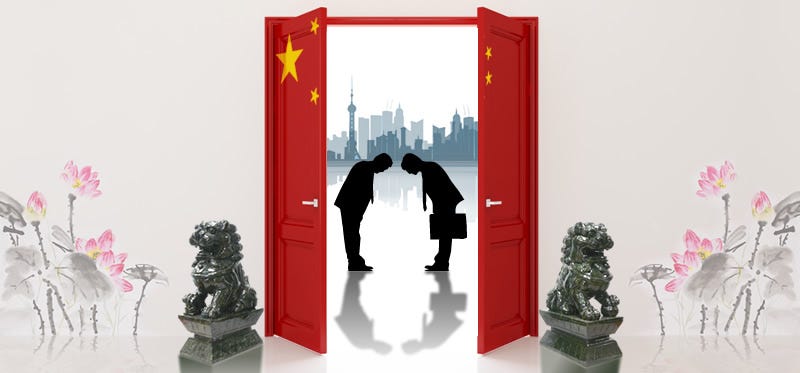
In 2012 the city of Shanghai made me professor ‘Future Forecasting & Innovation’ at Shanghai Institute of Technology. Since then I do my research there, sniffing the changes that pass over China, and therefore the world. Nine months ago, Shanghai Institute of Technology asked me to research how innovation in Europe works. China enjoys a subdued pride regarding the big leap it has made, but the country wants to avoid the so-called middle-income trap. The ambition is to go for the international top position. As a consequence, creativity and innovation are China’s new keywords. President Xi Jinping has made the ambition urgent and collective. When I recently presented the outcomes of my European top-innovations research, professor Cao Yang, who authorized the research, politely thanked me, but he also made clear that he realizes that China can’t learn much more from the West anymore when it comes to creativity and innovation. China now considers itself the smartest country in the world. That is no bragging, just a social fact in Chinese eyes. Chinese never brag, neither does Cao Yang. Him telling me so matter-of-factly about China’s new pride, is the result of us knowing each other for ten years, and working together. It’s the only way to build confidentiality in China. At the same time, Cao Yang is assessing a new problem: Europe and America don’t realize how creative and innovative China has become. How to present Chinese brands, products and services in Western eyes as the outstanding alternative? Please note that we are not talking about the area of cheap mass-production — that signifies China’s past. No, we are talking about areas of sophisticated products and services manufacturing. This is the big turn China is heading for. It will lead to China’s rise-next-step. And it is nearer by than the West thinks.
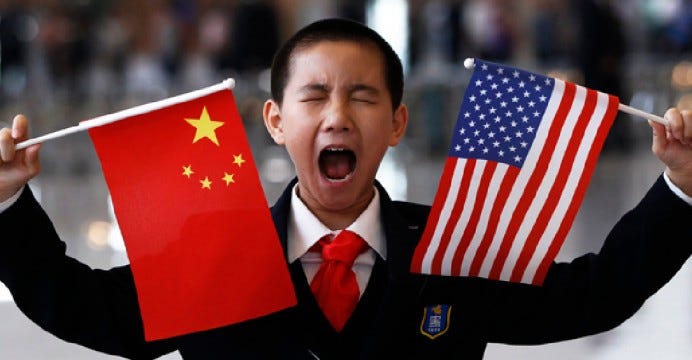
For over a decade I walk around in Shanghai on a regular basis. Every time I see China’s self-assuredness increasing and the Western sense of superiority decreasing. All expats I meet in China expect to have left the country within a decade. No exception. “They don’t need us anymore.” “Innovation runs faster here than anywhere else”. Pascal Absil has outsourced the production of its European companies’ accessories to China for almost two decades. “When in the past something went wrong with the production, the older generation used to keep it silent until the very last moment, before everything boiled over. The younger generations of Chinese have left that attitude behind. They are alert and proactive 24/7. They are our equals on all dimensions that count”. Joost Roozekrans, professor at a Polytechnic in Shanghai and creative director of design & consultancy agency Sparky Tiger, adds: “Of course, there are many non-innovative businesses in China. That is unavoidable in such a huge country. However, it is not the point. In the bigger cities, people are both very entrepreneurial and internationally oriented. That is the groundswell taking place.” Expats in China have less and less to teach to the country on the rise. Their tax benefits are correspondingly decreasing. At the same time, the Chinese government has started the ‘10.000 talents’ program, awarding professional experts of Chinese origin who live elsewhere, to return to motherland China.

Long time the West calmed itself by the mantra that, though China is indeed mass-producing everything for the whole world, the West possesses the ultimate creativity to imagine and construct everything new. Innovation is perceived as Western par excellence and Steve Jobs its superior manifestation. The Chinese can do hardly more than creative copying — no need to be afraid of that. Yet, the tide has changed disruptively. We are re-reading ‘China’s Disruptors’ by Edward Tse. Subtitle: ‘How Big Companies from China are Rewriting International Business Rules’. Next to Jobs the world now admires Alibaba’s Jack Ma on equal footing. China has almost as many unicorns (startups with a value of over one billion dollars) than the USA. The BATs — China’s top three of media giants: Baidu, Alibaba, Tencent — instill awe everywhere. Tencent’s market value has passed over 500 billion dollars, making it equal to Facebook. Alibaba has become master of ‘ChinAdaptation’: lucratively translating successful foreign products and services for the Chinese market. Online sales on China’s busiest day — Singles Day — surpasses the sales of USA’s two online best-selling days — Black Friday and Cyber Monday — twice. Chinese Haier has beaten its two biggest international competitors, Whirlpool (USA) and Electrolux (Europa) both in turnover and profits. Since 2013 China also buys more industrial robots than any other country. It is true that China’s automotive industry still is inferior to ours. But the country is preparing itself for the area of the electric car, where our superior expertise of traditional (diesel) engines hardly counts. Yes, it is true that Chinese electric cars don’t look as cool as ‘our’ Tesla. But in 2016 they sold already 330 thousands of them, grabbing the first-mover advantage in the biggest car market worldwide qua technological production, consumer knowledge and governmental regulations. Right now, China has little less than 200.000 electric loading points. It will be 4,8 million in 2020. Didi, China’s Uber, has driven ‘our’ Uber out of the Chinese market. The company is making much more drives a day than Uber does — about 20 million. It enables Didi to compete internationally with huge heaps of money. The West perceives Didi’s success mainly as caused by governmental help. From a Chinese perspective that is not the key factor. Both professor Cao Yang and designer Joost Roozekrans and also Ada Xiao, strategy director of one of China’s many blockchain companies, fully agree: “Yahoo, Groupon, eBay, Google and Uber came over with insufficient knowledge of how things are working here. So, they lost. How naive to think that you can conquer China based on the fact that you are successful in the West!”

The above tour-de-force China is performing can be further supplemented with ease. By solar panels, by airplanes of Chinese making, by Artificial Intelligence, by genetic manipulation, by mobile payments — China has 731 million smartphone users; 70% pays with them. The biggest commerce partner of sophisticated powerhouse Germany today is China. President Trump is magnificently facilitating China with its degradation of the Paris climate rules, giving away what is probably the biggest 21st-century market: sustainability. The fresh powers of China do not only play out on the economic dimension. The country also handsomely starts understanding how soft power can be deployed. From Confucius-centers worldwide to its panda politics. That panda politics circles around China’s exclusive willingness to rent a panda couple to each befriended nation. With lots of public relations fanfare and a one million dollars price tag. In Eastern Europe, economic might and soft power are combined with superior effectiveness, with the possibility breaking the old continent in two. China has started huge infrastructure projects there and accordingly, is lending huge amounts of money. Serbian authorities are calling China “a reliable new friend”. Polish government talks about an “enormous opportunity”. And Hungarian premier Orban announces that the economic center of gravity is shifting away from the Atlantic region towards the Pacific one. “Western Europe is still in denial, but that’s irrational”. In the meanwhile, the Eastern European nations have started to weaken European Union statements that are unwelcome to China, like support for the Dalai Lama, like criticizing Chinese expansion in the South-Chinese Sea. Together the Eastern-European countries plus China are now mentioned by a new name: the 16+1 club.
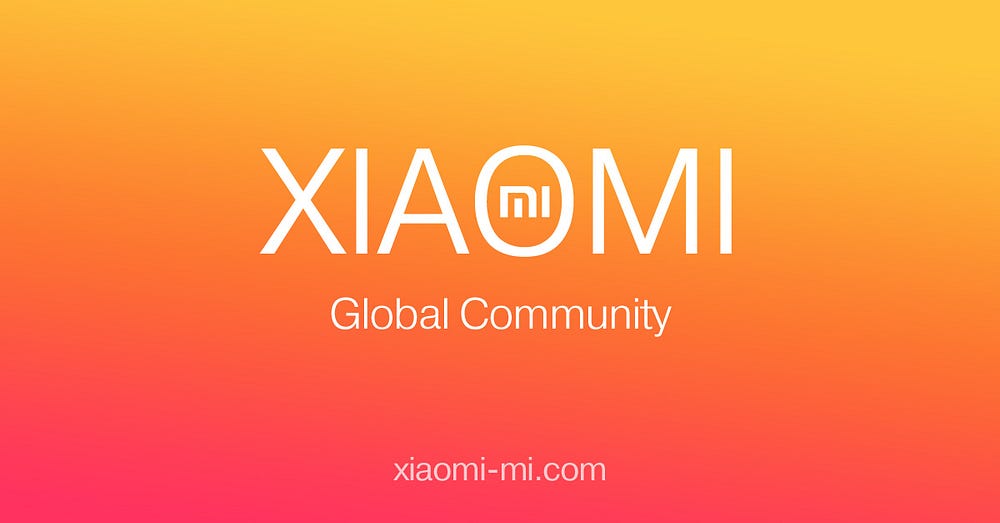
The size of the China march is not adequately estimated by Western business because its ultimate business model is not understood clearly enough. It deviates from the Western one. The West sees innovation as a process of continuous improvements of its products and services arsenal. This way they are able to ask more money for each updated and improved next version, while the older ones’ trickle down to respectively the masses and the laggards. China, however, does things differently: no less forceful but more invisible. Take mobile phone producer and service provider Xiaomi. From its tender beginnings, less than a decade ago, this young company realized it impossibly could compete with world leader Apple. So, Xiaomi focused on producing significantly below top-quality smartphones, but for an even significantly lower price. This way Xiaomi managed to conquer substantial market share, not in the least in China’s huge hinterland where it walks the best distribution channels. This way Xiaomi grew rich, investing its new richness enduringly into incremental improvements of its phones. Including every Friday morning an upgrade moment: making available all relevant new apps that strike a chord somewhere on our planet. A nice example of ChinAdaptation. Xiaomi now approaches the big ones: Apple and Samsung. The company has expanded its markets to India, Mexico, Brazil and Indonesia — earning more money on these markets; money with which, sooner or later, the contemporary top markets of Europe and North America will be attacked. Tencent takes the same strategic route with its WeChat app, the worldwide competitor of Whatsapp. Now still unknown electric car producers like BYD and Anhui Jianghuai are preparing to do the same. My point is not so much that China has different ways of production and innovating. That is only logical considering its huge and rather poor hinterland. My point is that the Western business-as-usual state-of-mind is underestimating the effective appeal of the Chinese Xiaomi’s (plural!) to the poorer parts of our planet while over-estimating the irresistible glitter of their own top-quality products. In many parts of the world, sales are higher for the less-than-perfect Chinese offerings. It makes the producing companies rich and consequently strong competitors.
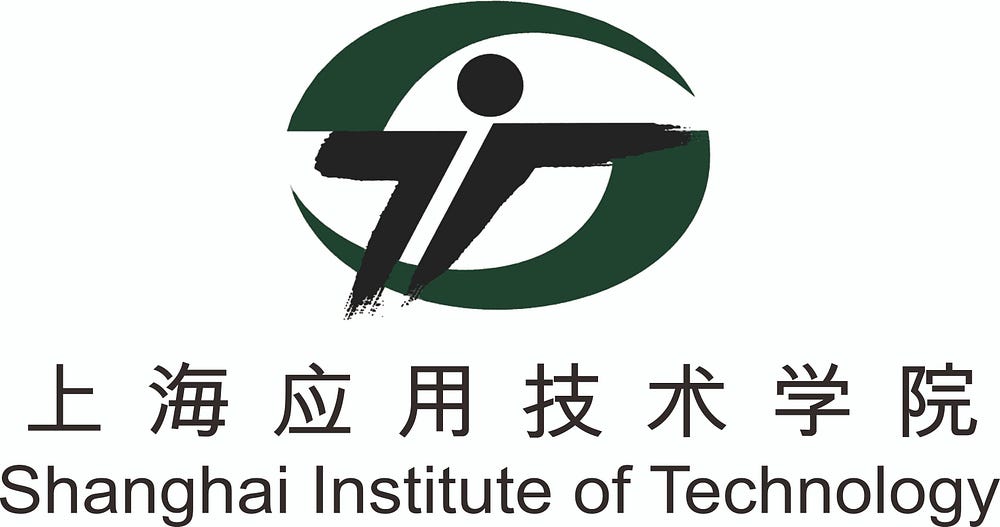
When I ask my Chinese contacts what Western business have to do better in order to succeed, the answer is unanimous. Companies don’t teach themselves enough about Chinese culture and ways of behaving. Recently I accompanied a top delegation of Shanghai Institute of Technology (S.I.T.) to some European academic institutions. President Li Jung of S.I.T. is an important man. His visit was postponed because China’s big Communist Party Congress summoned Li Jung to attend. Now the big man came after all. In China, such a VIP visit means that the inviting party queues up in line of importance to shake the revered hands. In Europe, and especially in the Netherlands, we are not in that habit. Also, several of the Dutch speakers of the morning program didn’t know who amongst the delegation was actually the big guy; neither did they stay after their own presentation as a sign of respect, instead preferring to excuse themselves courteously for their early departures. This might be called easy going in Western cultures. But it also signifies that we don’t bother too much to deepen us into the Chinese way. The S.I.T. delegation smiled inscrutably and probably somewhat embarrassed.
Alireza, my former student from Shanghai where he worked for several years, is now living in Amsterdam. “Amsterdam is fantastic. In Summer, the beach is surprisingly close by. Yet I miss the vibe of Shanghai. Within fifteen years that city will be the indisputable capital of the world. If only because they are building and rebuilding it over and over again — not hampered by whatever democratic decision processes the West feels so superior about. The West is fond of criticizing Chinese lack of democratic rules. Yet, Chinese people trust their governments much more than the West does theirs.” International research agency Pew adds intensity to this insight notifying that since recent times countries as different as Germany, Canada and Indonesia have more trust in the Chinese leadership style than in the contemporary American one.
All in all, dealing with the Chinese and doing business with them asks for more humbleness, deeper intercultural wisdom and a determined willingness to understand how business works in the new constellation of powerful nations.
All in all, dealing with the Chinese and doing business with them asks for more humbleness, deeper intercultural wisdom and a determined willingness to understand how business works in the new constellation of powerful nations.
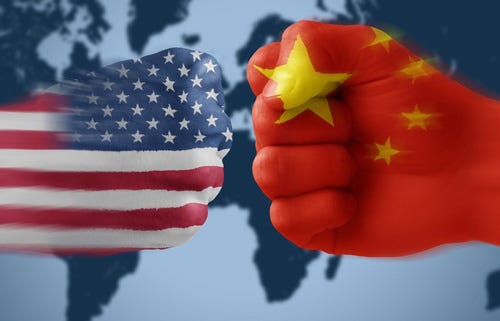
TEN PIECES OF ADVICE FOR DOING BUSINESS IN THE NEW CHINA
1. China isn’t waiting for you. You are a visitor and a guest.
2. China is foremost interested in the knowledge and expertise you are going to bring.
3. Creativity and innovation are key competences for the 21st century. The Chinese have become good at it. Yet, on these dimensions they still want to learn and cooperate with you.
4. Establish cooperation liaisons with knowledge institutes. Both knowledge institutes in China and knowledge institutes elsewhere (where you might hope to have an advantage.)
5. Long-term relations and contracts are essential. Short-term hardly counts.
6. Appropriate China and its culture. Never contradict the boss, for example. Especially don’t do so when he is wrong…
7. Appropriate China and its culture. ‘Step by step’ is a Chinese wisdom you must respect at all times.
8. Appropriate China and its culture. Doesn’t that work for you personally, then at least collaborate with extra amounts of Chinese employees.
9. Select (younger, talented) Chinese companions who have lived and/or worked outside China and are returning. They are mental bridge builders.
10. At all times, guard your intellectual properties. Affiliate yourself here with the best protection experts.
AND FURTHER:
A. Are you an international player, then consider deploying the Xiaomi model wherever it might suit your business: Don’t focus per se to sell the very best top quality, but develop a sharp appreciation for ‘good enough’ products. Internationally this can be very lucrative.
B. Are you an international player, top priority must be to establish stable relationships between the Western headquarters and those in China. The same goes for relationships with Chinese politics. Follow their rules of conduct, not yours.
C. Chinese greatest ambitions focus on the ‘sunrise’-sectors: energy-effective mobility, high-tech chip components, sustainability, medical instruments, industrial robots, agricultural innovations, mobile telephone innovations and aviation. If possible, make connections to these sectors. And flaunt them.
D. Chinese hinterland is immense. Economic growth there is higher now than in the developed East of China. Starbucks is focusing on this fact and new development. Assess what it could mean to you. Though, logistically speaking, you might find yourself in a backlog position.





